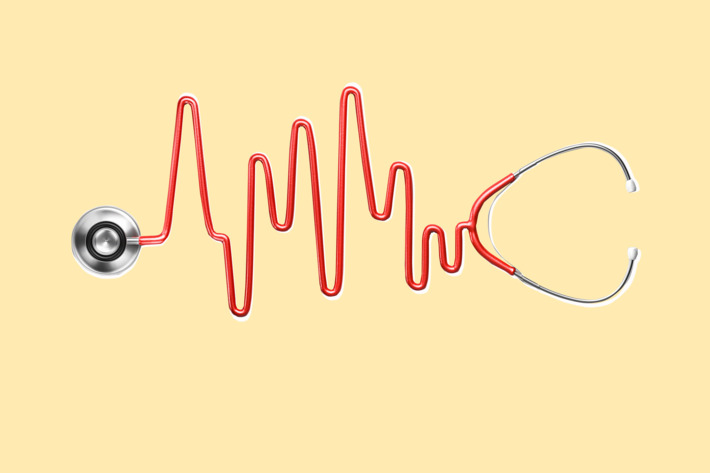Another of those questions we don’t think of every day — do your heart and brain communicate?
Recent research suggests there’s definite link. University of Sussex researcher Sarah Garfinkel has found evidence that the beats of your heart — and your awareness of that rhythm — shapes everything from anxiety to racism to stock trading.
Every time your heart beats, it pin gs pressure-sensitive receptors that send signals to the head. “The brain essentially flashes each time the heart beats,” she says, “and the degree of signal in the brain corresponds to how fast and how hard the heart is beating, so the brain is in dynamic, constant communication with the heart.” Your brain also represents the activity of our organs and these sensations guide the way you navigate the world. Recognizing this would be a shift in neuroscience — instead of separating the brain and the body as some are inclined to do, think of the brain as being embedded within the body. This could offer new treatments for conditions like anxiety, where drugs could target the body as well as the brain, or behavioral techniques like meditation that make people more bodily aware.
gs pressure-sensitive receptors that send signals to the head. “The brain essentially flashes each time the heart beats,” she says, “and the degree of signal in the brain corresponds to how fast and how hard the heart is beating, so the brain is in dynamic, constant communication with the heart.” Your brain also represents the activity of our organs and these sensations guide the way you navigate the world. Recognizing this would be a shift in neuroscience — instead of separating the brain and the body as some are inclined to do, think of the brain as being embedded within the body. This could offer new treatments for conditions like anxiety, where drugs could target the body as well as the brain, or behavioral techniques like meditation that make people more bodily aware.
“I think the general public kind of knows it instinctively, they know if they exercise they feel better, they know their mood changes, their cognition and memory increases; people who meditate also see changes in their cognition and emotion,” she has said. “It’s a responsibility of the scientific community to better understand these mechanisms and promote them as scientific — I feel instinctively that there’s a split where people think there are ‘scientific treatments’ like drugs, and there’s these ‘alternative treatments,’ and why do we need the distinction? If we can look at body-brain mechanisms, they can be scientific treatments as well — we just don’t yet know the mechanisms.”
One useful tool is interoception, or the felt sense of the activities of your organs. Garfinkel (and others) are finding that bodily sensations are keys to emotional experiences, and that how fine-tuned of an internal “feeler” you are predicts your ability to stabilize them. For example, in a 2016 paper, Garfinkel and her colleagues showed high interoceptive fluency helped high-frequency traders from the London Stock Exchange to make money. On the other hand, fear responses to scary faces are amplified when the heart ventricles contract (at systole). This may have behavioral and political consequences: In a just-published paper, Garfinkel and her colleagues found that the negative racial stereotype of black people as a threat is exaggerated at systole, where participants were more likely to say that a black man actually holding a phone or a wallet was holding a gun.
But heartbeat awareness looks to be trainable: Garfinkel says she has yet-to-be-published data suggesting that you can teach people to improve their interoception, thus reducing the unrecognized sensations and the anxiousness they promote.
In other words, know your heart, ease your mind.
The full article can be read at http://nymag.com/scienceofus/2017/01/how-your-heart-talks-to-your-brain.html? . The picture came from the article.
